Discover The Healing Trauma Podcast
The Healing Trauma Podcast

The Healing Trauma Podcast
Author: Monique Koven
Subscribed: 1,968Played: 63,096Subscribe
Share
© 2024 The Healing Trauma Podcast
Description
Everyone deserves to be seen, soothed, and understood. This podcast is here to light your path on the healing journey, offering empathy and hope along the way. Through conversations with trauma experts, w'ell share insights and practical support to help you heal and move forward.
Disclaimer: This podcast is for information purposes only and should not be considered as legal advice.This podcast is not intended to replace professional medical and mental health advice. Guest view's do not necessarily reflect that of the host or podcast. As an amazon affiliate, when you make a purchase, I receive a tiny amount.
151 Episodes
Reverse
In this conversation, Monique Koven and Dr. Aimie Apigian discuss the topic of overwhelm and how it relates to trauma and our nervous system. They explore the concept of overwhelm as a trauma response and the ways in which our body tries to protect us from it. They also discuss the role of parts work in addressing overwhelm and how to work with the protector parts that prevent us from accessing the younger, overwhelmed parts. Aimie emphasizes the importance of collaboration and building trust...
Find a list of trauma recovery books + resources for the healing trauma journey.
https://www.thehealingtraumapodcast.com/resources/
SUPPORT this podcast for the cost of a coffee. Your support is appreciated! When you buy me a coffee, your support goes towards keeping the podcast running.
HERE: https://buymeacoffee.com/thehealingtraumapodcast
Subscribe and watch on Youtube https://www.youtube.com/channel/UCJy4f23JvtdFuQGadOqy3PA
Disclaimer: This episode and website may contains affiliate links. When you make a purchase, I may receive a small commission at no cost to you.
Support this podcast at — https://redcircle.com/the-healing-trauma-podcast/donations
Advertising Inquiries: https://redcircle.com/brands
Privacy & Opt-Out: https://redcircle.com/privacy
You cannot to heal from Trauma until you gently learn to become friends with your nervous system. May survivors have adapted to trauma by shutting down or disconnecting from their feelings and sensations.This makes sense when you live in a dangerous and threatening environment. However the patterns of disconnection remain long after the trauma is over. Welcome to a brand new season of The Healing Trauma Podcast. In this first healing trauma conversation, host Monique Koven and Trau...
Find a list of trauma recovery books + resources for the healing trauma journey.
https://www.thehealingtraumapodcast.com/resources/
SUPPORT this podcast for the cost of a coffee. Your support is appreciated! When you buy me a coffee, your support goes towards keeping the podcast running.
HERE: https://buymeacoffee.com/thehealingtraumapodcast
Subscribe and watch on Youtube https://www.youtube.com/channel/UCJy4f23JvtdFuQGadOqy3PA
Disclaimer: This episode and website may contains affiliate links. When you make a purchase, I may receive a small commission at no cost to you.
Support this podcast at — https://redcircle.com/the-healing-trauma-podcast/donations
Advertising Inquiries: https://redcircle.com/brands
Privacy & Opt-Out: https://redcircle.com/privacy
With Mother's Day approaching I'm re-releasing a special episode with psychologist and trauma expert Dr. Arielle Schwartz.In this episode, Monique Koven and Dr. Arielle Schwartz discuss the complexities of Mother's Day and the impact it can have on individuals with trauma. They explore the range of emotions that can arise, including happiness, sadness, guilt, and shame. They emphasize the importance of self-compassion and attending to the sacred wounds of the past. They also discuss the role ...
Find a list of trauma recovery books + resources for the healing trauma journey.
https://www.thehealingtraumapodcast.com/resources/
SUPPORT this podcast for the cost of a coffee. Your support is appreciated! When you buy me a coffee, your support goes towards keeping the podcast running.
HERE: https://buymeacoffee.com/thehealingtraumapodcast
Subscribe and watch on Youtube https://www.youtube.com/channel/UCJy4f23JvtdFuQGadOqy3PA
Disclaimer: This episode and website may contains affiliate links. When you make a purchase, I may receive a small commission at no cost to you.
Support this podcast at — https://redcircle.com/the-healing-trauma-podcast/donations
Advertising Inquiries: https://redcircle.com/brands
Privacy & Opt-Out: https://redcircle.com/privacy
Welcome to the very first episode of the new season of The Healing Trauma Podcast - Faith Edition I am delighted and so very grateful to be able to share this conversation with therapist, podcast host, author and psychiatrist Dr. Curt Thompson. We talked about healing, safety and connection and the formation of embodied hope. And so much more. I absolutely loved it! This is a video episode. https://youtu.be/CHmkWbitCsE?si=GxaCJ8UO2GmxlUSN Hope you find it helpful 🕊️BUY ME A COFFEEhttps:...
Find a list of trauma recovery books + resources for the healing trauma journey.
https://www.thehealingtraumapodcast.com/resources/
SUPPORT this podcast for the cost of a coffee. Your support is appreciated! When you buy me a coffee, your support goes towards keeping the podcast running.
HERE: https://buymeacoffee.com/thehealingtraumapodcast
Subscribe and watch on Youtube https://www.youtube.com/channel/UCJy4f23JvtdFuQGadOqy3PA
Disclaimer: This episode and website may contains affiliate links. When you make a purchase, I may receive a small commission at no cost to you.
Support this podcast at — https://redcircle.com/the-healing-trauma-podcast/donations
Advertising Inquiries: https://redcircle.com/brands
Privacy & Opt-Out: https://redcircle.com/privacy
In this replay conversation, psychotherapist Cath Counihan and Monique delve into the complexities of parenting when one has experienced childhood trauma. They discuss the challenges of emotional regulation, the impact of trauma adaptations, and the importance of self-compassion in navigating parenthood. The conversation emphasizes the need for understanding one's own trauma history to better support children and highlights the messiness of parenting as a shared human experience.Books Mentioned:Burnout: The Secret to Unlocking the Stress Cyclehttps://amzn.to/4qGtrq1Healing the Fragmented Selves of Trauma Survivors: Overcoming Internal Self-Alienation by Janina Fisherhttps://amzn.to/4rRJkeyTransforming The Living Legacy of Trauma: A Workbook for Survivors and Therapists by Janina Fisherhttps://amzn.to/3ZWmIxDCath's website & podcast : https://www.cathcounihan.com/https://www.cathcounihan.com/grow-yourself-up
Find a list of trauma recovery books + resources for the healing trauma journey.
https://www.thehealingtraumapodcast.com/resources/
SUPPORT this podcast for the cost of a coffee. Your support is appreciated! When you buy me a coffee, your support goes towards keeping the podcast running.
HERE: https://buymeacoffee.com/thehealingtraumapodcast
Subscribe and watch on Youtube https://www.youtube.com/channel/UCJy4f23JvtdFuQGadOqy3PA
Disclaimer: This episode and website may contains affiliate links. When you make a purchase, I may receive a small commission at no cost to you.
Support this podcast at — https://redcircle.com/the-healing-trauma-podcast/donationsAdvertising Inquiries: https://redcircle.com/brandsPrivacy & Opt-Out: https://redcircle.com/privacy
In this replay conversation, host Monique Koven interviews Rebekkah LaDyne, a somatic therapist and author about her book 'The Mind Body Stress Reset.' They discuss the importance of somatic practices in managing extreme stress and trauma, emphasizing the body-mind connection. Rebecca shares her personal journey and the development of self-administered somatic tools that can help individuals navigate their stress responses and build resilience. The conversation highlights the need for accessible mental health resources and the significance of understanding trauma's impact on stress responses.takeawaysSomatic therapy focuses on the body-mind connection.Extreme stress responses require different coping strategies.Cognitive reframing is less effective for high-stress events.Self-administered somatic tools can be highly effective.Resilience pathways help individuals recover from stress.Trauma can reset our baseline stress levels.Building resilience pathways is essential for recovery.Accessible mental health resources are crucial for everyone.Mindfulness practices should be adapted to individual needs.Understanding trauma helps in managing stress responses.Book: The Mind-Body Stress Reset: Somatic Practices to Reduce Overwhelm and Increase Well-Beinghttps://amzn.to/4c4Ph2Rhttps://www.rebekkahladyne.com/
Find a list of trauma recovery books + resources for the healing trauma journey.
https://www.thehealingtraumapodcast.com/resources/
SUPPORT this podcast for the cost of a coffee. Your support is appreciated! When you buy me a coffee, your support goes towards keeping the podcast running.
HERE: https://buymeacoffee.com/thehealingtraumapodcast
Subscribe and watch on Youtube https://www.youtube.com/channel/UCJy4f23JvtdFuQGadOqy3PA
Disclaimer: This episode and website may contains affiliate links. When you make a purchase, I may receive a small commission at no cost to you.
Support this podcast at — https://redcircle.com/the-healing-trauma-podcast/donationsAdvertising Inquiries: https://redcircle.com/brandsPrivacy & Opt-Out: https://redcircle.com/privacy
*This new season of the HTP podcast will be a slowing down with an offering of older (replay) episodes from previous seasons. In this conversation, Monique Koven and psychologist and author Allison Cook delve into the concept of parentification, where children take on adult responsibilities, leading to significant emotional and relational challenges in adulthood. They explore the effects of parentification on self-esteem, boundaries, and the ability to form healthy relationships. The discussion emphasizes the importance of recognizing these patterns, setting boundaries with parents, and navigating the complexities of caring for aging parents. They also touch on the healing process, dealing with guilt, and breaking the cycle of unhealthy family dynamics.takeawaysParentification involves a role reversal where children care for their parents.This phenomenon can lead to long-term emotional and relational issues.Children may feel overly responsible for their parents' needs.Setting healthy boundaries with parents is crucial for emotional well-being.Recognizing signs of guilt and manipulation from parents is important.Healing from parentification involves reparenting oneself.It's essential to negotiate responsibilities towards aging parents.Creating safe spaces and support systems can aid in healing.Understanding false guilt can help in breaking unhealthy cycles.Open communication with children fosters healthier relationships.Dr. Alison Cook's Books, Website & PodcastI Shouldn't Feel This Way: Name What’s Hard, Tame Your Guilt, and Transform Self-Sabotage into Brave Action https://amzn.to/4jLAeNzBoundaries for Your Soul: How to Turn Your Overwhelming Thoughts and Feelings into Your Greatest Allies https://amzn.to/3ZeIY5gThe Best of You: Break Free from Painful Patterns, Mend Your Past, and Discover Your True Self in God https://amzn.to/4jNPLMHhttps://www.dralisoncook.com/https://www.dralisoncook.com/podcast
Find a list of trauma recovery books + resources for the healing trauma journey.
https://www.thehealingtraumapodcast.com/resources/
SUPPORT this podcast for the cost of a coffee. Your support is appreciated! When you buy me a coffee, your support goes towards keeping the podcast running.
HERE: https://buymeacoffee.com/thehealingtraumapodcast
Subscribe and watch on Youtube https://www.youtube.com/channel/UCJy4f23JvtdFuQGadOqy3PA
Disclaimer: This episode and website may contains affiliate links. When you make a purchase, I may receive a small commission at no cost to you.
Support this podcast at — https://redcircle.com/the-healing-trauma-podcast/donationsAdvertising Inquiries: https://redcircle.com/brandsPrivacy & Opt-Out: https://redcircle.com/privacy
In this episode of the Healing Trauma Podcast, guest host Dr. Mark McNear speaks with Tammy Gustafson who shares her personal journey through betrayal trauma and the healing process that followed. As a licensed professional counselor, she discusses the complexities of betrayal, the misconceptions surrounding it, and the importance of understanding betrayal trauma as a legitimate form of trauma. Tammy emphasizes the need for time in the healing process, the significance of emotional regulation, and the role of fun and joy in recovery. She also highlights her professional insights gained from her experiences and the creation of her upcoming book aimed at helping others navigate their healing journey.TakeawaysBetrayal trauma is a legitimate form of trauma that can overwhelm one's ability to process emotions.The healing process takes time and cannot be rushed or bypassed.It's crucial for betrayed partners to understand that the betrayal is not their fault.Emotional dysregulation is common in betrayal trauma, and support systems are vital for recovery.Finding joy and fun is an essential part of the healing journey.Tammy emphasizes the importance of setting boundaries and recognizing one's worth.The journey of healing can lead to personal growth and empowerment.Tammy's upcoming book aims to guide betrayed partners through their healing process.Healing from betrayal can lead to profound transformation and resilience.About Our GuestTammy Gustafson, MA, LPC, is a trauma-informedlicensed professional counselor, coach, and speakerwith over 15 years of experience. She holds a master’sdegree in counseling and is the founder and CEO ofBetrayal Healing and LiveFree Counseling. Tammyhosts the annual Betrayal Healing Conference, whichprovides compassionate, expert guidance tothousands of betrayed partners worldwide.Guest Host: Guest Host: Dr. Mark McNearhttps://www.instagram.com/drmarkmcnear/Tammy's Book:Broken to Brave: Your Courageous Act of Healing After Intimate Betrayalhttps://amzn.to/4s5bZh0website:https://tammygustafson.com/betrayal-healing/https://www.instagram.com/tammylgustafson/
Find a list of trauma recovery books + resources for the healing trauma journey.
https://www.thehealingtraumapodcast.com/resources/
SUPPORT this podcast for the cost of a coffee. Your support is appreciated! When you buy me a coffee, your support goes towards keeping the podcast running.
HERE: https://buymeacoffee.com/thehealingtraumapodcast
Subscribe and watch on Youtube https://www.youtube.com/channel/UCJy4f23JvtdFuQGadOqy3PA
Disclaimer: This episode and website may contains affiliate links. When you make a purchase, I may receive a small commission at no cost to you.
Support this podcast at — https://redcircle.com/the-healing-trauma-podcast/donationsAdvertising Inquiries: https://redcircle.com/brandsPrivacy & Opt-Out: https://redcircle.com/privacy
*This episode is a re release from an earlier season of the HTP.In this conversation, Monique Koven and holistic psychotherapist Esther Schwarz discuss the profound effects of childhood trauma and the journey of healing from complex PTSD. Esther shares her personal experiences with trauma, symptoms, and the importance of understanding and managing these challenges. They explore the role of support systems, the impact of overwhelm on daily functioning, and the necessity of educating partners about trauma. The conversation emphasizes resilience, hope, and the possibility of recovery, encouraging listeners to seek help and not give up on their healing journey.takeawaysEsther shares her journey of living with childhood trauma.Understanding complex PTSD is crucial for healing.Support systems play a vital role in recovery.Overwhelm can significantly impact daily functioning.The journey from anxiety to recognizing complex trauma is complex.Educating partners about trauma can enhance relationships.Resilience is a key component in the healing process.There is hope for recovery and personal growth.Sharing experiences can help others feel less alone.Don't give up before the miracle happens.Find Esther here: https://www.instagram.com/estherschwarz.lmsw/
Find a list of trauma recovery books + resources for the healing trauma journey.
https://www.thehealingtraumapodcast.com/resources/
SUPPORT this podcast for the cost of a coffee. Your support is appreciated! When you buy me a coffee, your support goes towards keeping the podcast running.
HERE: https://buymeacoffee.com/thehealingtraumapodcast
Subscribe and watch on Youtube https://www.youtube.com/channel/UCJy4f23JvtdFuQGadOqy3PA
Disclaimer: This episode and website may contains affiliate links. When you make a purchase, I may receive a small commission at no cost to you.
Support this podcast at — https://redcircle.com/the-healing-trauma-podcast/donationsAdvertising Inquiries: https://redcircle.com/brandsPrivacy & Opt-Out: https://redcircle.com/privacy
Trigger Warning: Contains sensitive content & language related to childhood sexual abuse.In this episode of the Healing Trauma Podcast, Guest Host Dr. Mark McNear talks with Dr. Dan Allender to discuss the profound impact of trauma and the healing power of story work. They explore the complexities of personal narratives, the importance of kindness in therapy, and the long-term journey of healing from trauma. The conversation emphasizes the need for a compassionate approach to understanding one's story and the role of kindness in facilitating healing. Listeners are encouraged to engage with their own stories and recognize the ongoing nature of healing.takeawaysStory work can lead to profound healing and joy.Engaging with personal trauma stories is essential for healing.Kindness is crucial in the therapeutic process.Betrayal and powerlessness are common themes in trauma.Shame can complicate the experience of pleasure in trauma.Touch and arousal can evoke complex feelings in trauma survivors.Healing is a lifelong journey, not a quick fix.Understanding the past is essential for present healing.Kindness differs from niceness; it involves deeper engagement.The process of remembering trauma is vital for recovery.About the Guest: Dr. Dan Allender, co-founder of The Allender Center and founding president of The Seattle School of Theology & Psychology, has pioneered a unique and innovative approach to trauma and abuse therapy over the past 30 years.https://www.instagram.com/allendercenter/Guest Host: Dr. Mark McNearhttps://www.instagram.com/drmarkmcnear/
Find a list of trauma recovery books + resources for the healing trauma journey.
https://www.thehealingtraumapodcast.com/resources/
SUPPORT this podcast for the cost of a coffee. Your support is appreciated! When you buy me a coffee, your support goes towards keeping the podcast running.
HERE: https://buymeacoffee.com/thehealingtraumapodcast
Subscribe and watch on Youtube https://www.youtube.com/channel/UCJy4f23JvtdFuQGadOqy3PA
Disclaimer: This episode and website may contains affiliate links. When you make a purchase, I may receive a small commission at no cost to you.
Support this podcast at — https://redcircle.com/the-healing-trauma-podcast/donationsAdvertising Inquiries: https://redcircle.com/brandsPrivacy & Opt-Out: https://redcircle.com/privacy
*This episode is a re release from an earlier season of the HTP. It is a wonderful conversation about understanding Developmental Trauma.In this conversation, Monique is chatting with trauma therapist Mily Gomez. Mily discusses the concept of developmental trauma, its impact on emotional regulation, attachment styles, and relationships. She explains how early experiences shape our ability to connect with others and manage our emotions. The discussion also covers the importance of validation, support, and the healing process through reparenting and somatic work. Mily emphasizes the need for individuals to develop tools for self-regulation and the significance of building healthy attachments in adulthood.takeawaysDevelopmental trauma occurs from conception to age two or three.Implicit memory affects how we feel without conscious awareness.Early experiences set the foundation for emotional regulation.Insecure attachment can lead to trust issues in relationships.Validation and support are crucial for healing.Reparenting oneself is a key part of the healing process.Somatic experiencing helps in processing trauma stored in the body.Clients can learn to self-regulate their emotions.Healthy attachments can be built even after trauma.Therapy provides a safe space for exploring difficult emotions.Find Milly Gomez on IGhttps://www.instagram.com/latibulecounseling/
Find a list of trauma recovery books + resources for the healing trauma journey.
https://www.thehealingtraumapodcast.com/resources/
SUPPORT this podcast for the cost of a coffee. Your support is appreciated! When you buy me a coffee, your support goes towards keeping the podcast running.
HERE: https://buymeacoffee.com/thehealingtraumapodcast
Subscribe and watch on Youtube https://www.youtube.com/channel/UCJy4f23JvtdFuQGadOqy3PA
Disclaimer: This episode and website may contains affiliate links. When you make a purchase, I may receive a small commission at no cost to you.
Support this podcast at — https://redcircle.com/the-healing-trauma-podcast/donationsAdvertising Inquiries: https://redcircle.com/brandsPrivacy & Opt-Out: https://redcircle.com/privacy
In this conversation, author and trauma therapist Monica DiCristina shares her insights on the importance of naming pain and understanding one's emotional triggers. She discusses her book, 'Your Pain Has A Name,' and emphasizes the significance of accurate diagnosis in therapy. The discussion also touches on the impact of dismissal in therapeutic settings, the dangers of oversimplified healing approaches, and the importance of finding the right therapeutic relationship. Monica encourages listeners to keep seeking understanding and healing, reminding them that they are not alone in their struggles.takeawaysMonica wrote her book to help others name their pain.Naming pain is essential for separating identity from trauma.Many people walk around feeling something is wrong with them.Accurate diagnosis is crucial for effective healing.Understanding one's wiring can help in managing mental health.Dismissal in therapy can lead to feelings of isolation.Oversimplified healing approaches can be harmful.The therapeutic relationship is key to successful outcomes.It's important to find a therapist who feels right for you.Everyone's journey to understanding and healing is unique.Monica's new book: Your Pain Has a Name: A Therapist’s Invitation to Understanding Your Story and Sorting Out Who You Are from What Hurts https://amzn.to/4i3qmxFWhere to Find Monica:Website: https://monicadicristina.comInstagram: @monicadicristinaStill Becoming Podcast
Find a list of trauma recovery books + resources for the healing trauma journey.
https://www.thehealingtraumapodcast.com/resources/
SUPPORT this podcast for the cost of a coffee. Your support is appreciated! When you buy me a coffee, your support goes towards keeping the podcast running.
HERE: https://buymeacoffee.com/thehealingtraumapodcast
Subscribe and watch on Youtube https://www.youtube.com/channel/UCJy4f23JvtdFuQGadOqy3PA
Disclaimer: This episode and website may contains affiliate links. When you make a purchase, I may receive a small commission at no cost to you.
Support this podcast at — https://redcircle.com/the-healing-trauma-podcast/donationsAdvertising Inquiries: https://redcircle.com/brandsPrivacy & Opt-Out: https://redcircle.com/privacy
In this episode of the Healing Trauma Podcast, Monique Koven speaks with trauma therapist Gina Birkemeier about her book 'Generations Deep,' which explores the impact of generational trauma and the importance of healing. They discuss how family patterns shape our beliefs and behaviors, the significance of corrective experiences in healing, and the role of curiosity in breaking cycles of dysfunction. Gina shares her personal journey of recognizing and addressing inherited trauma, emphasizing the need for supportive relationships and the importance of not navigating this journey alone.takeawaysThe title of the book is 'Generations Deep, Unmasking Inherited Trauma and Dysfunction to Rewrite Our Stories.'Family patterns can carry significant weight and influence our lives.Healing is a non-linear process that involves ups and downs.Curiosity can help combat shame and rigidity in our lives.Corrective experiences are essential for emotional healing.Breaking cycles of trauma starts with individual healing.It's important to recognize and address inherited beliefs and behaviors.Supportive relationships can provide a foundation for healing.Self-reflection is crucial in understanding our childhood needs.Do not navigate the healing journey alone; seek support.Find Gina here: Gina Birkemeier, LPC, NCCGina's Book: Generations Deep: Unmasking Inherited Dysfunction and Trauma to Rewrite Our Stories Through Faith and Therapy https://amzn.to/3X9ytPCGenerations Workbook: Generations Deep Journal: Write Your Healing Storyhttps://amzn.to/47lrR6L
Find a list of trauma recovery books + resources for the healing trauma journey.
https://www.thehealingtraumapodcast.com/resources/
SUPPORT this podcast for the cost of a coffee. Your support is appreciated! When you buy me a coffee, your support goes towards keeping the podcast running.
HERE: https://buymeacoffee.com/thehealingtraumapodcast
Subscribe and watch on Youtube https://www.youtube.com/channel/UCJy4f23JvtdFuQGadOqy3PA
Disclaimer: This episode and website may contains affiliate links. When you make a purchase, I may receive a small commission at no cost to you.
Support this podcast at — https://redcircle.com/the-healing-trauma-podcast/donationsAdvertising Inquiries: https://redcircle.com/brandsPrivacy & Opt-Out: https://redcircle.com/privacy
In this conversation, Monique and Dr. Maureen Gallagher explore the integration of Somatic Experiencing and Inner Relationship Focusing as powerful tools for healing trauma and understanding the inner critic. They discuss how these methods can help individuals build a compassionate relationship with their experiences, update old emotional learnings, and transform the inner critic into a supportive part of the self. The conversation emphasizes the importance of self-compassion, the role of attachment in personal growth, and the potential for learning these techniques to enhance emotional well-being.takeawaysSomatic experiencing connects deeply with the nervous system.Inner relationship focusing builds a relationship with somatic experiences.The inner critic often stems from old emotional learnings.Transforming the inner critic involves understanding its protective role.Updating emotional learnings can alleviate unnecessary fears.Self-compassion is crucial for personal growth and healing.Integrating somatic experiencing with focusing enhances transformation.Learning these techniques can be done individually or with guidance.Building a secure attachment to self fosters emotional safety.Recognizing the inner critic as a part of oneself can change relationships.About Our Guest: Dr. Maureen Gallagher is a Licensed Psychologist (NY, NJ), Somatic Experiencing Practitioner and Faculty Member, Inner Relationship Focusing Trainer, Emotionally Focused Therapist and Supervisor and a Relational Psychoanalyst. Her work and teaching are dedicated to the embodiment of psychotherapy and related healing disciplines, in which she integrates somatic awareness and the use of somatic intervention along with adult attachment work and a relational focus. She brings a broad range of experience and training to this endeavor, including Certifications in Somatic Experiencing, Inner Relationship Focusing, Relational Psychoanalysis, Emotionally Focused Therapy, Integral Somatic Psychology, SE Touch skills training and Biodynamic Cranial Sacral Therapy. Her clinical work integrates focusing, somatic experiencing, relational psychoanalysis and experiential and process oriented models of attachment theory. She has maintained a private practice for over 20 years. She is the founder of Embodying Psychotherapy.Get started right away with the Inner Critics Companion Guide: https://maureengallagherphd.com/inner-critics-companion-guidebook Stay in touch with Maureen via her monthly letter: https://maureengallagherphd.com/join-my-newsletter
Find a list of trauma recovery books + resources for the healing trauma journey.
https://www.thehealingtraumapodcast.com/resources/
SUPPORT this podcast for the cost of a coffee. Your support is appreciated! When you buy me a coffee, your support goes towards keeping the podcast running.
HERE: https://buymeacoffee.com/thehealingtraumapodcast
Subscribe and watch on Youtube https://www.youtube.com/channel/UCJy4f23JvtdFuQGadOqy3PA
Disclaimer: This episode and website may contains affiliate links. When you make a purchase, I may receive a small commission at no cost to you.
Support this podcast at — https://redcircle.com/the-healing-trauma-podcast/donationsAdvertising Inquiries: https://redcircle.com/brandsPrivacy & Opt-Out: https://redcircle.com/privacy
In this conversation, Monique welcomes back Dr. Lindsay Gibson to discuss the complexities of emotionally immature mothers and their impact on daughters. They explore the characteristics of emotional immaturity, the need for empathy and connection, and the challenges faced by adult children in navigating relationships with such parents. The discussion also touches on healing strategies, the importance of supportive relationships, and the future of parenting emotionally mature children.takeawaysEmotional immaturity can manifest in various ways, affecting relationships.The need to be seen and understood is fundamental for emotional health.Daughters of emotionally immature mothers often feel invisible and misunderstood.Empathy is crucial for healthy relationships and emotional maturity.Navigating relationships with emotionally immature parents requires self-care and boundaries.Healing is a process that involves recognizing and managing one's own emotional needs.Supportive friendships can provide the empathy and connection lacking in parental relationships.Understanding emotional immaturity can help adult children cope with their experiences.Raising emotionally mature children involves fostering empathy and emotional intelligence.It's important to acknowledge the pain of unmet emotional needs and work towards healing.Watch this episode on youtube https://youtu.be/fthdfUk5WHE?si=X4qmjUrY5jbzT373Find Lindsay's books here:Adult children of Emotionally Immature Parentshttps://amzn.to/4kpLu1lRecovering from Emotionally Immature Parents: Practical Tools to Establish Boundaries and Reclaim Your Emotional Autonomy https://amzn.to/42YKdHgSelf-Care for Adult Children of Emotionally Immature Parents: Honor Your Emotions, Nurture Your Self, and Live with Confidencehttps://amzn.to/3RTG6XXDisentangling from Emotionally Immature People: Avoid Emotional Traps, Stand Up for Your Self, and Transform Your Relationships as an Adult Child of Emotionally Immature Parentshttps://amzn.to/44qhHRo
Find a list of trauma recovery books + resources for the healing trauma journey.
https://www.thehealingtraumapodcast.com/resources/
SUPPORT this podcast for the cost of a coffee. Your support is appreciated! When you buy me a coffee, your support goes towards keeping the podcast running.
HERE: https://buymeacoffee.com/thehealingtraumapodcast
Subscribe and watch on Youtube https://www.youtube.com/channel/UCJy4f23JvtdFuQGadOqy3PA
Disclaimer: This episode and website may contains affiliate links. When you make a purchase, I may receive a small commission at no cost to you.
Support this podcast at — https://redcircle.com/the-healing-trauma-podcast/donationsAdvertising Inquiries: https://redcircle.com/brandsPrivacy & Opt-Out: https://redcircle.com/privacy
This episode is a re release from a previous season.In this conversation, Monique is talking with Dr. Richard Schwartz, the creator of Internal Family Systems, (IFS) They discuss the model and its application in healing trauma, particularly childhood and complex trauma. Richard emphasizes the importance of understanding the 'self' within IFS, the process of unburdening parts of oneself that carry trauma, and the transformative potential of accessing one's inherent self. The discussion also covers practical techniques for working with protectors and exiled parts.takeawaysIFS helps in healing trauma by addressing parts of oneself.The self is an untainted essence that knows how to heal.Unburdening parts can lead to rapid transformation.Curiosity and compassion are key in working with inner critics.Healing involves retrieving and nurturing the inner child.Protectors must be honored and understood, not fought against.Accessing the self can take time and patience.Children can easily understand and engage with their parts.Spiritual insights suggest that the self is inherent in everyone.The upcoming book aims to make IFS accessible to a wider audience.https://ifs-institute.com/The Internal Family Systems Workbook: A Guide to Discover Your Self and Heal Your Parts https://amzn.to/3Ky7nPfNo Bad Parts: Healing Trauma and Restoring Wholeness with the Internal Family Systems Model https://amzn.to/4mUZHUFIntroduction to Internal Family Systems https://amzn.to/3VPnudK
Find a list of trauma recovery books + resources for the healing trauma journey.
https://www.thehealingtraumapodcast.com/resources/
SUPPORT this podcast for the cost of a coffee. Your support is appreciated! When you buy me a coffee, your support goes towards keeping the podcast running.
HERE: https://buymeacoffee.com/thehealingtraumapodcast
Subscribe and watch on Youtube https://www.youtube.com/channel/UCJy4f23JvtdFuQGadOqy3PA
Disclaimer: This episode and website may contains affiliate links. When you make a purchase, I may receive a small commission at no cost to you.
Support this podcast at — https://redcircle.com/the-healing-trauma-podcast/donationsAdvertising Inquiries: https://redcircle.com/brandsPrivacy & Opt-Out: https://redcircle.com/privacy
*This episode is being re released on September 30 to honour the National day For Truth And Reconciliation.In this episode of the Healing Trauma Podcast, host Monique Koven speaks with Nakuset, an Indigenous woman who shares her powerful story of being a survivor of the 60s scoop and the impact of residential schools on her life and family. Nakuset discusses her journey of self-discovery, the challenges faced by Indigenous communities, and her work as the executive director of the Native Women's Shelter in Montreal. The conversation highlights the importance of healing, community support, and the need for accountability in addressing historical injustices.takeawaysTrauma recovery is a messy and challenging process.The 60s scoop involved the forced adoption of Indigenous children.Residential schools had a devastating impact on Indigenous families.Sisterly bonds can be both a source of strength and trauma.Grief can be transformed into action for social change.Empowering Indigenous women is crucial for community healing.Creating sustainable solutions for homelessness is essential.Collaboration with youth protection is necessary for effective support.Accountability for historical injustices is vital for healing.Community-driven solutions are key to addressing systemic issues.https://www.instagram.com/supacree/Documentary: https://youtu.be/9P4iYYL4FYY?si=tayMiSmckkSWOe9C
Find a list of trauma recovery books + resources for the healing trauma journey.
https://www.thehealingtraumapodcast.com/resources/
SUPPORT this podcast for the cost of a coffee. Your support is appreciated! When you buy me a coffee, your support goes towards keeping the podcast running.
HERE: https://buymeacoffee.com/thehealingtraumapodcast
Subscribe and watch on Youtube https://www.youtube.com/channel/UCJy4f23JvtdFuQGadOqy3PA
Disclaimer: This episode and website may contains affiliate links. When you make a purchase, I may receive a small commission at no cost to you.
Support this podcast at — https://redcircle.com/the-healing-trauma-podcast/donationsAdvertising Inquiries: https://redcircle.com/brandsPrivacy & Opt-Out: https://redcircle.com/privacy
*This episode is a re release from a previous season.In this conversation, Monique is talking with guest family therapist Sidu Arroyo about the critical aspects of emotional regulation, particularly for those with trauma histories. She emphasizes the importance of understanding that emotions are neither good nor bad, and that self-regulation is a skill that requires practice and co-regulation with others. The discussion also addresses the feelings of guilt and shame that parents may experience when they lose control, and the significance of repairing relationships with children after emotional outbursts. Overall, the conversation highlights the need for compassion towards oneself and the importance of creating a safe environment for emotional expression.takeawaysEmotions are neither good nor bad; they are experiences.Self-regulation is a skill that takes practice.Safety is essential for effective self-regulation.Co-regulation is crucial for children to learn self-regulation.Parents often struggle with guilt and shame after losing control.Repairing relationships is vital after emotional outbursts.Acknowledging emotions with compassion is important.Children need consistent support to develop emotional skills.It's okay to be human and make mistakes as a parent.This journey of emotional regulation is a process, not linear.Sidu Arroyo:https://www.instagram.com/becomingathome/
Find a list of trauma recovery books + resources for the healing trauma journey.
https://www.thehealingtraumapodcast.com/resources/
SUPPORT this podcast for the cost of a coffee. Your support is appreciated! When you buy me a coffee, your support goes towards keeping the podcast running.
HERE: https://buymeacoffee.com/thehealingtraumapodcast
Subscribe and watch on Youtube https://www.youtube.com/channel/UCJy4f23JvtdFuQGadOqy3PA
Disclaimer: This episode and website may contains affiliate links. When you make a purchase, I may receive a small commission at no cost to you.
Support this podcast at — https://redcircle.com/the-healing-trauma-podcast/donationsAdvertising Inquiries: https://redcircle.com/brandsPrivacy & Opt-Out: https://redcircle.com/privacy
In this conversation, Linda Pevac shares her journey of healing through writing, discussing her three books that explore her experiences as an adoptee and the therapeutic techniques that have aided her growth. She emphasizes the importance of understanding one's identity, the impact of trauma, and the necessity of embracing change for personal development. The discussion also highlights the nuances of the adoptee experience and the significance of creating a safe space for healing.takeawaysHealing is a continuous journey that brings joy.Writing has been a powerful tool for self-discovery.Therapy can help individuals connect with their inner parts.Choosing to breathe symbolizes making conscious choices.Adoption starts with trauma, affecting identity development.Creating a gathering place allows for dialogue with inner parts.Truth and authenticity are essential for personal growth.Anxiety can cloud creativity and self-expression.It's important to challenge the stories we tell ourselves.The journey of healing can inspire others to find their own path.Watch this episode on Youtubehttps://youtu.be/c6I8Z76syKMLinda's new book: Choosing to Breathehttps://amzn.to/4mynPMRThe Gathering Place: An Adoptee's Storyhttps://amzn.to/3JYO1T7A Fire is Cominghttps://amzn.to/4mdBc4yLinda's website: www.emmastevenswriter.comhttps://www.instagram.com/thehealingtraumapodcast/
Find a list of trauma recovery books + resources for the healing trauma journey.
https://www.thehealingtraumapodcast.com/resources/
SUPPORT this podcast for the cost of a coffee. Your support is appreciated! When you buy me a coffee, your support goes towards keeping the podcast running.
HERE: https://buymeacoffee.com/thehealingtraumapodcast
Subscribe and watch on Youtube https://www.youtube.com/channel/UCJy4f23JvtdFuQGadOqy3PA
Disclaimer: This episode and website may contains affiliate links. When you make a purchase, I may receive a small commission at no cost to you.
Support this podcast at — https://redcircle.com/the-healing-trauma-podcast/donationsAdvertising Inquiries: https://redcircle.com/brandsPrivacy & Opt-Out: https://redcircle.com/privacy
In this episode of the Healing Trauma Podcast, Guest host, Dr. Mark McNear interviews Tim Fletcher, who shares his journey from burnout to becoming a trauma counselor. Tim discusses the roots of complex trauma, the importance of emotional needs in childhood, and the long road to recovery. He emphasizes the significance of self-love, finding safe people, and the challenges of navigating emotions in complex PTSD. Tim also provides insights on tools for emotional regulation and the necessity of patience in the healing process.TakeawaysTim's journey into trauma counseling began unexpectedly.Complex trauma includes both big T and little t traumas.Unmet childhood needs can lead to complex trauma.Healing from trauma is a long and messy process.Finding safe people is crucial in recovery.Emotions can be difficult for those with complex PTSD.The past can influence present emotional responses.Self-love and validation are essential for healing.Emotional regulation tools can aid in recovery.Connection with safe people is vital for healing.Watch this episode on Youtube https://youtu.be/llF501d9mkY?si=ywL7to0XUXnmPsJYTim's Website:https://www.timfletcher.ca/IG: https://www.instagram.com/timfletcherco/Guest host :Dr. McNear's Website: https://markmcnear.com/
Find a list of trauma recovery books + resources for the healing trauma journey.
https://www.thehealingtraumapodcast.com/resources/
SUPPORT this podcast for the cost of a coffee. Your support is appreciated! When you buy me a coffee, your support goes towards keeping the podcast running.
HERE: https://buymeacoffee.com/thehealingtraumapodcast
Subscribe and watch on Youtube https://www.youtube.com/channel/UCJy4f23JvtdFuQGadOqy3PA
Disclaimer: This episode and website may contains affiliate links. When you make a purchase, I may receive a small commission at no cost to you.
Support this podcast at — https://redcircle.com/the-healing-trauma-podcast/donationsAdvertising Inquiries: https://redcircle.com/brandsPrivacy & Opt-Out: https://redcircle.com/privacy


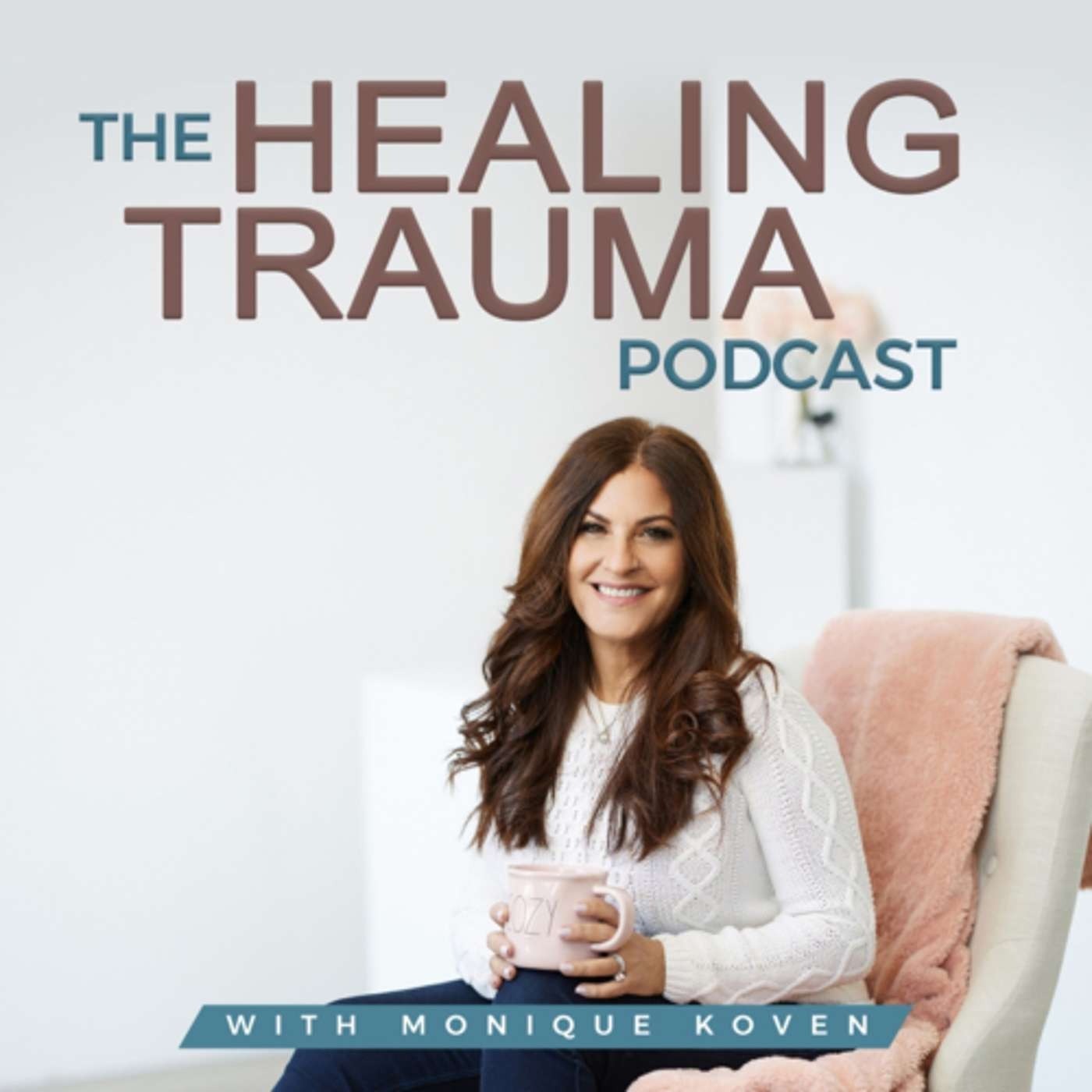
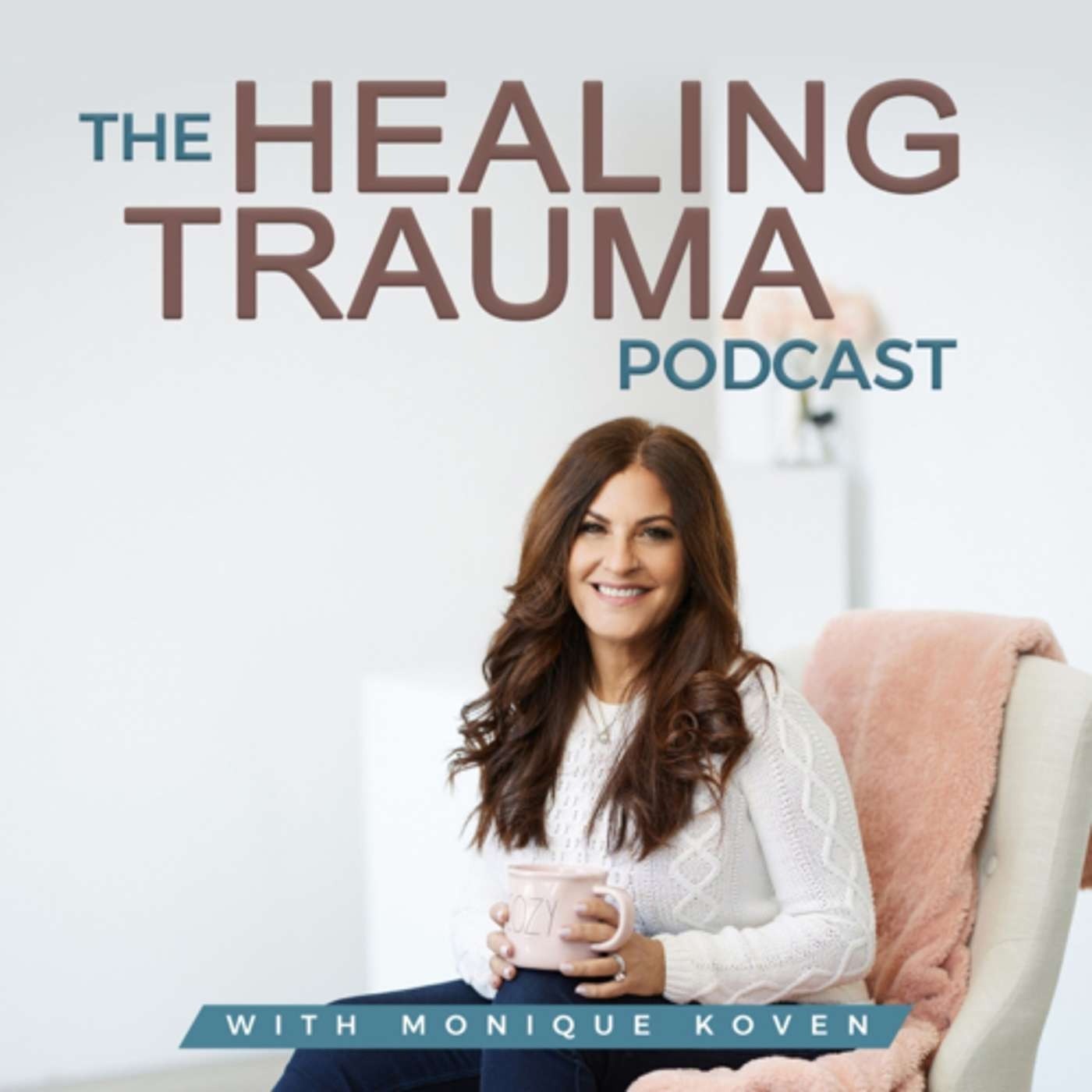




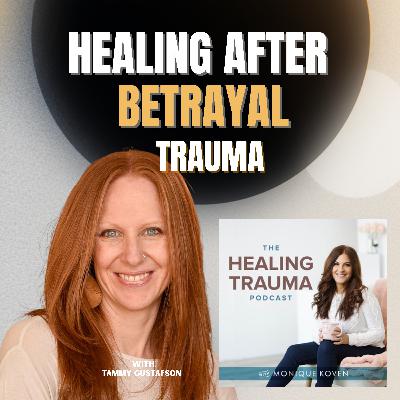
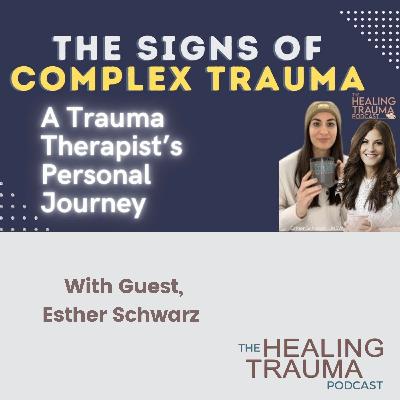
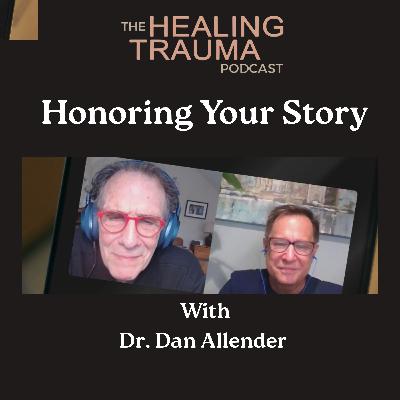
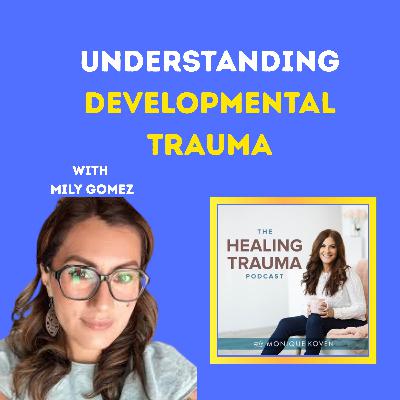
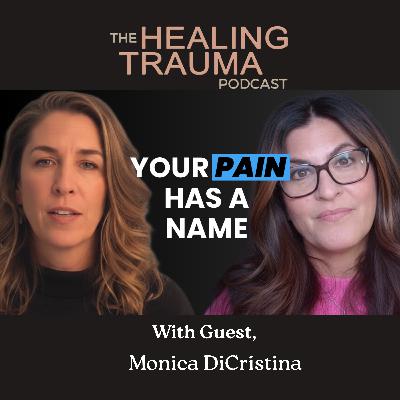
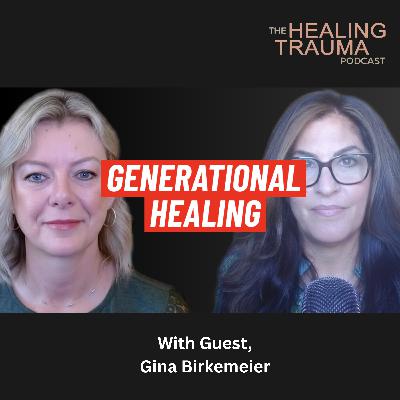

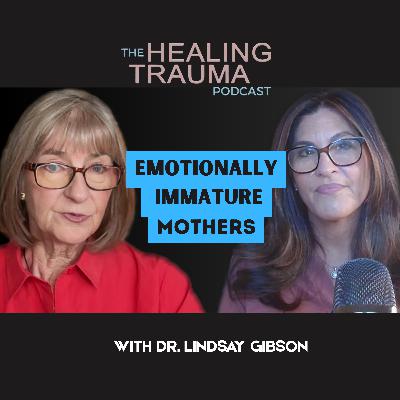

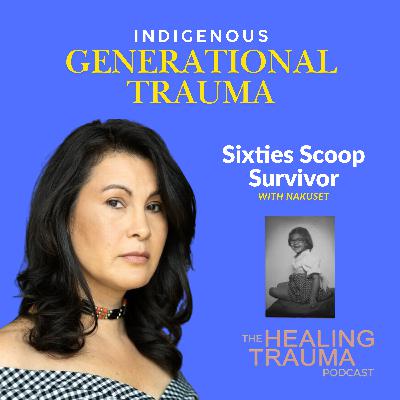
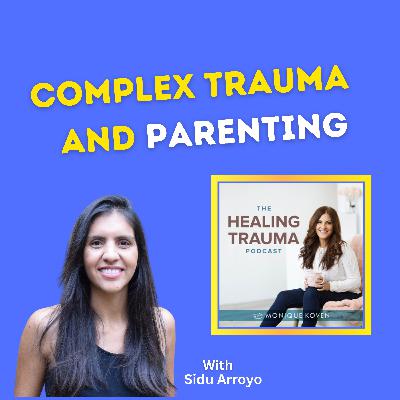
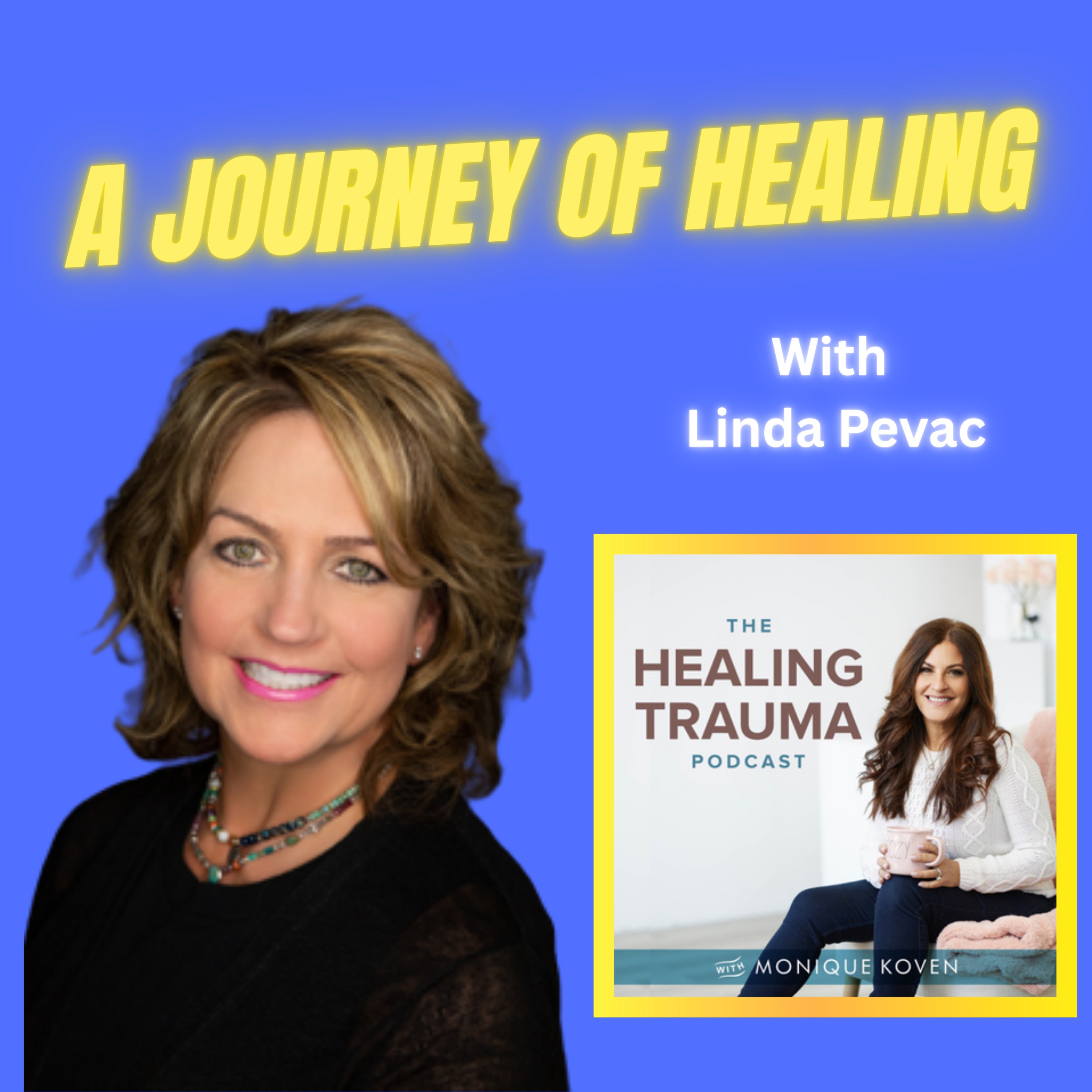
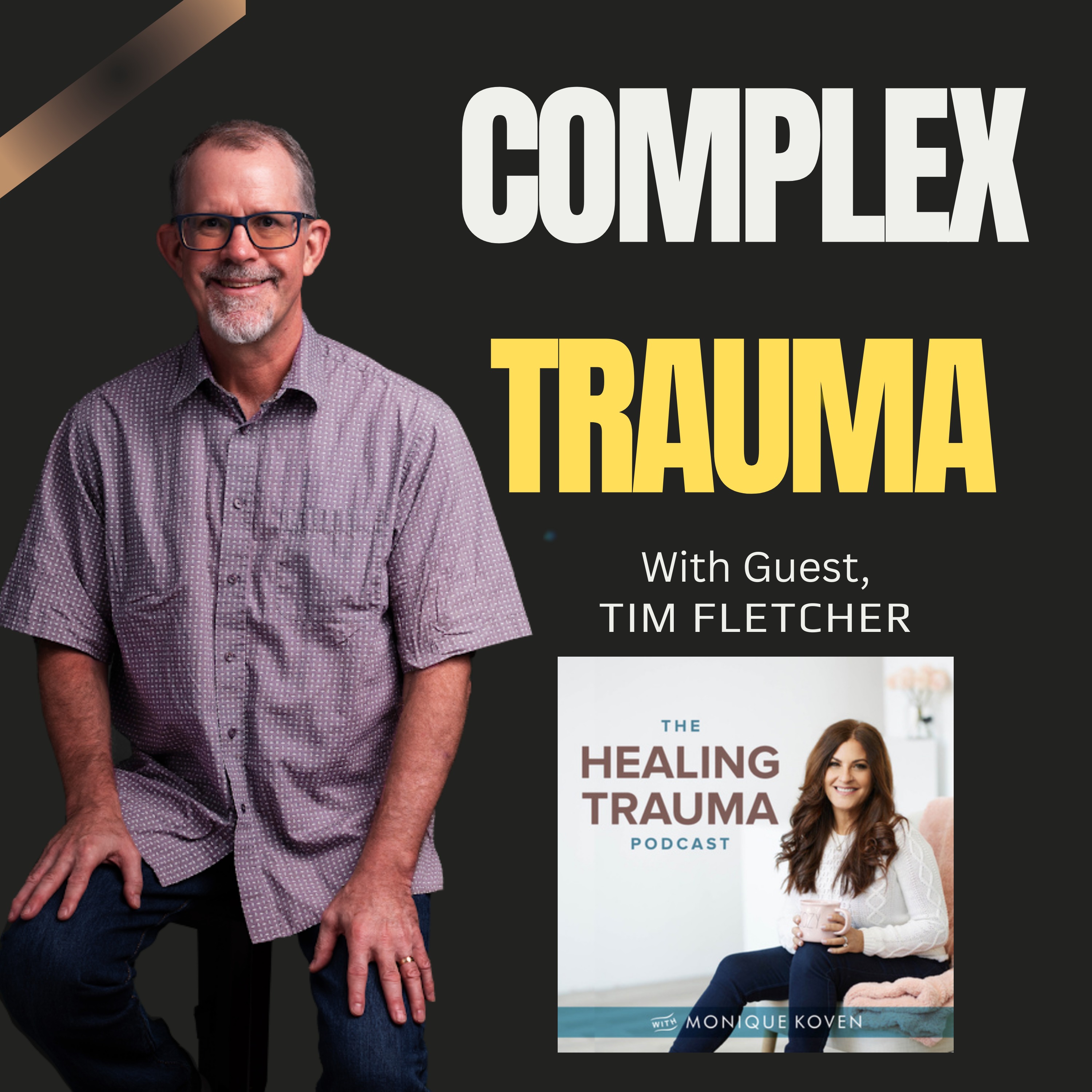



thank you, this resonates a lot
I really loved listening to Emma Steven's story of healing from trauma. I've got her book in hand and I can't wait to read it. Thanks, Monique, for a wonderful interview.
great episode and topic! that was a discussion that was so needed!
Monique you are such an inspiration! Thank you for all that you do.
Thank you so much Monique!!! your podcast episodes help me so much! If you're thinking about working with Monique one on one you definitely should. I've worked with her and she has helped me so much. she's so compassionate, insightful, and thoughtful!!
you have such a gift Monique!! thank you for sharing your gifts with the world!!!
Better audio please. Very low on my end. Love your content. Thanks!
I really enjoy listening to these podcasts! Monique is so compassionate, you can hear it through her voice. I got a lot of insights and support through these podcasts, thanks Monique!!